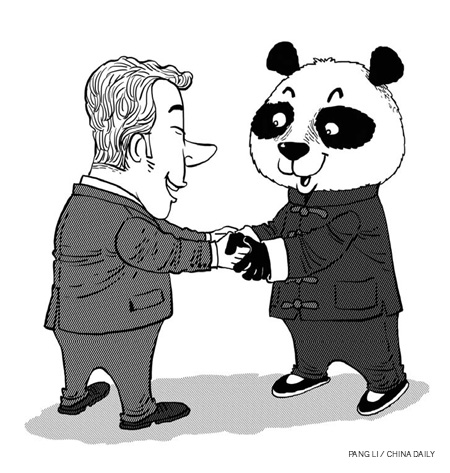Adding Asian color to public diplomacy

On March 7, Foreign Minister Yang Jiechi delivered a speech at the annual session of National People's Congress, highlighting the achievements of China's diplomacy. However, China's public diplomacy, which was not mentioned by Yang, deserves applause, too.
Public diplomacy, which many consider a major foreign policy tool, has drawn a lot of attention from Western countries, particularly the United States. It helped the US become a globally "attractive" power after World War I. US public diplomacy has successfully communicated the American way of life to people outside that country. It has helped the US, and other Western powers following similar policies, to connect with and influence the rest of the world.
But the attacks on the US on Sept 11, 2001, raised serious doubts about the effectiveness of Western public diplomacy and forced the US and other Western powers to revisit these policies.
While the West is trying hard to improve its "damaged" image after 9/11, China and India are increasingly taking to public diplomacy. Their eagerness to apply public diplomacy is mainly to connect closely with other countries in the era of globalization and to realize the gains that can arise from such connections.
Compass and papermaking that China invented, and India's invention of "zero" have made great contributions to civilizations over the centuries. Since both countries, for obvious reasons, were looked up to with awe by the rest of the world, they never felt the need to consciously impress others with their virtues.
But with international relations changing rapidly and China and India becoming targets of negative propaganda, both countries have realized the importance of projecting their true images to the rest of the world. The two countries have begun constructively engaging people and institutions overseas for the purpose and are keen on using specific policies because the modern world requires publicizing and highlighting achievements.
While India's public diplomacy is yet to acquire a focused and distinct shape, China's efforts have been more noteworthy. An opinion poll conducted in 2008 in 22 major countries, including many of China's neighbors, showed people in most of them viewed it positively. China's gonggong waijiao or public diplomacy involves an array of activities to "win hearts and minds".
 0
0 






